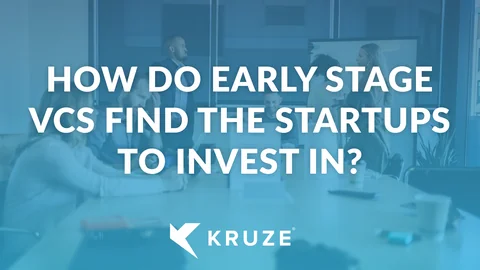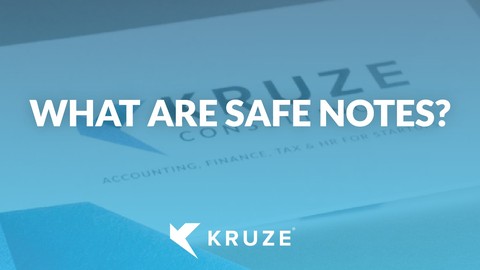
It’s important to recognize that finding interesting startups to invest in is what early stage VCs are really exceptionally good at. They are amazing at generating really, really strong deal flow. They’re also very good at being, for lack of a better word, talent scouts. They’re very good at recognizing very bright people who are coming on the scene or have a great idea. And they’re also good at recognizing the market opportunity behind those good ideas.
Having great deal flow is the really big differentiator between the venture capitalists who are able to raise large funds and those who can not. And this is important if you’re a startup founder because you need to know how to reach the VCs that you want to get involved in your company. So let’s get into it.
Ways VCs find startups to invest in
The first one is creating lots of high-quality content. Examples include Fred Wilson or Bill Gurley. Some of the older VCs have been doing this for a long time, producing content, and just general advice. And now, you see in the VC world, some funds institutionalizing this media and content creation, First Round Capital has an amazing newsletter. Andreessen Horowitz is basically kicking off a whole kind of media company. Fred Wilson’s blog is still legendary. Bill Gurley’s blog is legendary when he writes it. There’s a lot of VCs on Twitter. What these venture capitalists have realized is by putting out content or messaging about industries or concepts they find interesting, it’s actually a great way to help startup founders find them.
The reverse of this would be investors like the Summit Partners model. Summit is a very, very successful VC fund, but later-stage, and they just cold call and do a lot of direct marketing to business owners. Direct outreach to build relationships and uncover high-potential companies.
This is not as easy of a model at the early-stage. because it’s so hard to know who to call or who to reach out to. And a lot of the best ideas come from the fringes. And so by putting out content, and demonstrating the kind of advice, and how smart they are and how they can help your company, they can generate a lot of really great deal flow that way. So that’s number one. And I would say that’s number one by a lot.
So if you’re a founder interacting with their content, messaging them, commenting on it, especially if someone puts out something that is right in the ballpark of what you’re working on, that’s a great time to reach out to that VC. And don’t be afraid of cold emails. We’ll talk about that a little bit later, but venture capitalists do answer and do fund companies that come through cold emails - especially if the company cold emailing the VC is on point for something that they’ve recently written or talked about publicly.
The second most common way VCs find startups to invest in is by introductions from existing portfolio company management teams - aka other founders they’ve invested in. It’s a huge validation for a venture capitalist when another founder introduces them to a company or startup or founder that’s doing something really interesting because oftentimes, the founders of the portfolio companies are the most in tune with what’s happening in the market.
And if an existing relationship (i.e. founder they’ve already invested in) is making the intro to the VC, which is an important relationship for them, that means it’s something interesting and the venture capitalist should really pay attention. This is probably the highest validation channel. Maybe, even the most important, because I think more times than not, these are the ones that lead to an investment. And I can look at the Kruze Consulting client portfolio because we have a lot of relationships with a lot of VC firms and a lot of founders. And I can tell who made the intros to who. So if you’re having trouble getting in touch with a venture capitalist to pitch them, ask one of the founders they’ve invested in for coffee, to listen to your pitch. And if they like it, they’re going to make that intro to the VC. So that’s number two.
Number three is angel investors, especially if you’re a seed stage or Series A fund, angel investors can be another great kind of “scouting system” for you because angels, oftentimes, are wealthy individuals or people who’ve been very successful in the corporate world. And so they’re going around investing in companies that they find interesting. So again, they’re kind of processing that same set of filters I talked about other founders having, but they also realized and they’re financially savvy, they know that a company can’t function just on their angel dollars or even a seed stage fund knows they can’t function on seed stage dollars. And so they need to get bigger funds involved. Especially for series A funds, they can get a lot of great referrals from angels and same with seed funds, even more than Series A because they’re still earlier. That is a really, really good referral source.
And we used to say at Lighthouse when I worked in venture capital, they have a right to an opinion. Smart angel investors often have great insights and know a lot about the industries that they are investing in. The next one is, frankly, other seed funds or pre-seed funds. So, if you’re a seed fund, you typically have raised, the numbers have gotten really big now, but it used to be a $10 million fund. And then it was a $20, $25 million fund. Now, some seed stage funds are getting $50, $70 million. Because the failure rate is really, really high at the seed stage, what you see is that they tend to partner with other funds. You might see a Precursor and Homebrew do a deal together, to pick just a couple folks we’re familiar with. Often a startup needs $3M, and the seed fund can only invest $1M, so they team up.
Another way VCs find new investments is through cold emails. There’s really kind of an art to cold emails. Jason Lemkin at SaaStr talks about this all the time. He has some really good posts on this. But when you’re running a cold email, you do not want to overwhelm the VC with a bunch of text, or giant, giant paragraphs. You want to start off with a very simple one sentence or two sentence; what your company does. So for Kruze Consulting it’s that we do accounting and taxes for startups. And at this point when I’m recording the video in the middle of 2021, we have over 500 clients. That would be what I would send to the VC. That’s a very quick summary that then leads to the hook.
Then I would follow up with why we’re different. And that would probably be another one or two sentences. And then, I would follow up with bullet-pointed metrics on showing how much you’re growing, how big your customer base is, how much revenue you have, team, anything that signals velocity and success. Anything that can create a social proof to show that venture capitalist that they should actually pay attention. You’re only going to get them for 10 seconds via cold email. So if you write a super wordy intro, or a lot of paragraphs explaining why you’re going to change the world, they’re probably not going to read it. But if you can get a very succinct message on what you do, why you’re different, and the metrics that prove you’re worth their time, then you can get a meeting.
And as I said earlier, there are a lot of VC firms do fund companies from cold emails. That is a fact. Of course, I’d still recommend networking into some of their portfolio companies and getting an introduction that way.
And then, there’s a couple other categories of ways VCs find new startups to invest in. Later stage VCs are actually a pretty good source for venture capitalists. And the reason why is, you know, especially the VC funds that play at the $10 million in revenue or greater category, they are active players in the ecosystem. And so just by being in the ecosystem, they’re going to get a lot of people who know them. They’re going to get a lot of intro requests. And so, they’re going to see some really interesting good deals. But remember, their day job is to invest in companies that are growing very quickly that have scale, such as $10 million of revenue or up. So they’re not going to be able to spend a lot of time evaluating/underwriting very early stage investment. But if it’s something that’s interesting, they will send that to their early stage investor friends.
And remember, the late stage folks are typically sitting on boards on the successful companies with those early stage investors. So everyone knows each other. And it’s also nice if a late stage investor finds a really interesting company. It’s a nice favor to do for those early stage investors to just put them in front of a really interesting company. And, of course, you’re doing the entrepreneur a favor, too. So later stage VCs actually can send some decent deal flow to early stage investors.
And then the final category is corporate VCs, and also just corporate entities that are buying some software or buying some tools, or maybe looking at different molecules, whatever category you’re in in the startup ecosystem. Those companies, if they find something really interesting, what to be helpful. They want to make sure your company gets funded because they have a vested interest in you building your company up.
And someday, they’re either going to partner with you or buy your software or buy your molecules in an acquisition or asset purchase, but they want to see you survive. And again, they have a right to an opinion. And so you’re going to see corporate entities or maybe business development, corporate development folks, or group managers, line managers, people who own a product at a bigger company, make those intros as well. And again, I keep coming back to this, but when a qualified person who really knows the industry you’re in makes those intros to early stage investors, early stage investors are going to pay attention because those experts are doing a lot of work for the early stage investors. They’re filtering it for them. And so that’s very helpful, especially when you remember early stage investors have to make a lot of investments. They typically are volume-oriented because they just have a high failure rate.
And maybe the one other thing I just add in here is building your own brand in the same way I talked about kind of content marketing, putting advice out there for the early stage investors. And that was I think my number one category here. You can do that as a startup founder, too. It takes some time. It takes a long time, a lot of work, but building your own brand, ahead of the time when you actually need to ask for money, can be really, really helpful. It always pays to have a solid brand.
